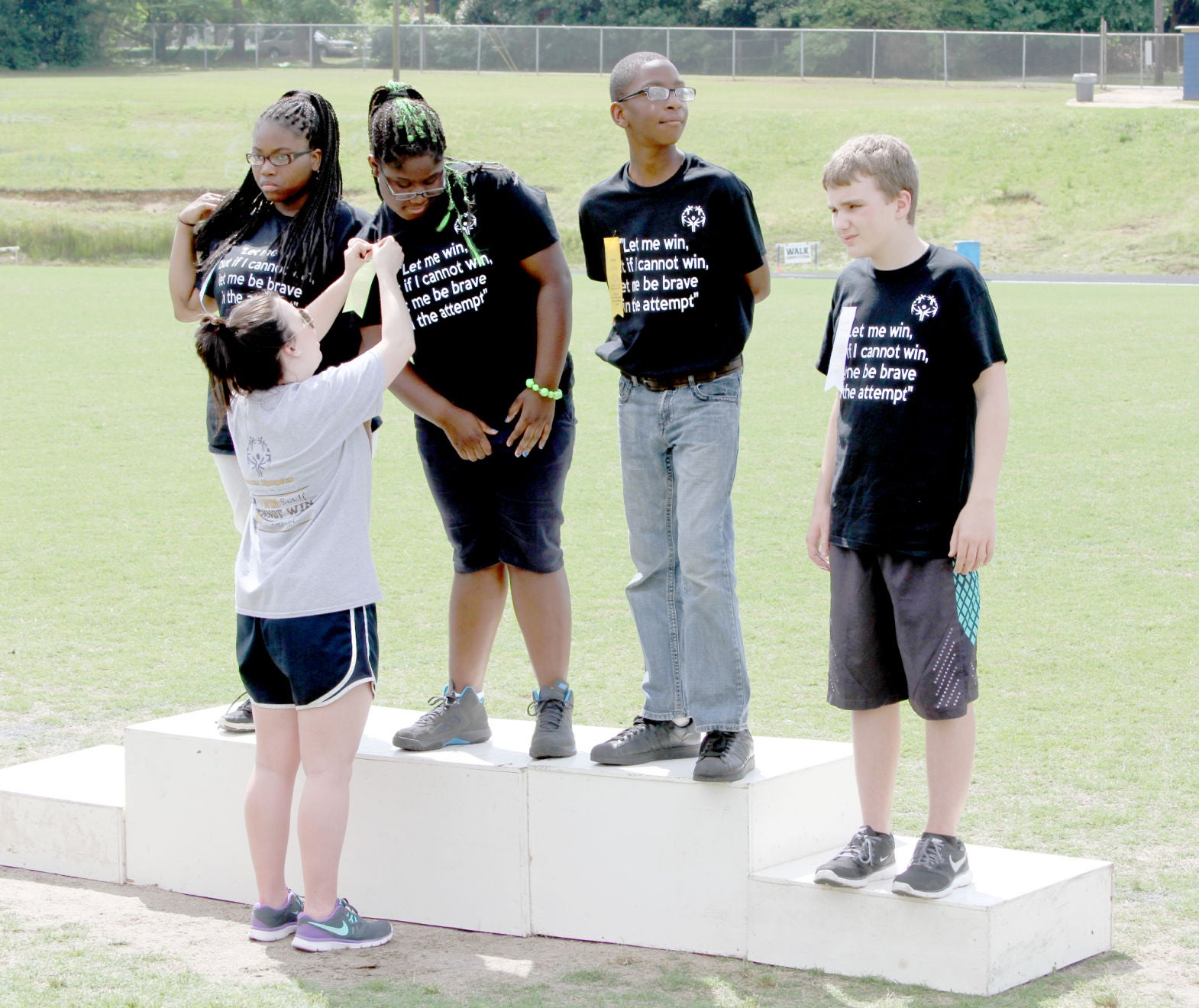Special Olympics Spring Games held in Americus
Published 12:00 am Sunday, April 19, 2015
AMERICUS – On April 10, student athletes with special needs from all over Sumter and Lee counties converged on the Americus-Sumter County High School football field to participate in the annual Area 11 Special Olympics Spring Games.
At the event, the students participated in competitions designed to demonstrate skills associated with track and field sports.
Events included throwing competitions, kicking events, jumping events, and various foot races as well as wheel chair races.
Stations for face painting and other activities were provided for athletes to participate in between events.
Over 100 Americus locals took part in the games and many more came from Lee County. The total count of participants was between 250 and 300 athletes.
Student athletes from GSW and ASCHS volunteered to help make the games a success.
One of the event’s lead student organizers from GSW, Addie Bell, spoke with the Times Recorder during the games stating, “It’s their chance to shine. They have the opportunity to come out here and be supported by a ton of people. It’s their opportunity to have some fun and be themselves.”
Gavyn Bernstein, a professor at Georgia Southwestern, told the Times-Recorder how the college is involved with the Special Olympics. “We, as a special education program, volunteer to help coordinate these area games”, Bernstein said. “We work closely with the state of Georgia Special Olympic organization… We work with students and student clubs. There are a lot of clubs out here today. Every athletic team from GSW is represented out here today. They come out and support us. We work very closely with Coach [Carl] Willis, from Americus-Sumter County Schools. He helps us logistically to get the use of the field and the track.”
“That’s why we got involved. It’s a need, so we decided that we should do it” Bernstein continued. “GSW has been doing this since well before I got here. It seems that everyone has a good time.”
Asked what sort of impact with the games have on the participants as well as the volunteers, Bernstein said “We try to get a lot of feedback. Our [GSW] students really get that impact more so because they are working with the different kids as they go through the different events. They are getting to know them, and we do see a definite impact on that sense of caring and giving back.”
Bernstein continued “In the young athletes with special needs, for sure, we can see the impact as well. Earlier, we had to move an event because the participants are able to throw the softball much further than they were last year. The social interaction is important as well. The kids get to meet other kids. That is a huge benefit for some of our participants. They are greeting one another and improving their speaking skills. We can tell that they are communicating at a much higher level. So, it absolutely has a positive impact. It’s a great time for the young special Olympians. They may not succeed as well in academics, but here is another playing field, per se, that they can compete on and have a good, fun time.”
Carl Willis, one of many organizers of the Special Olympics, told the Times-Recorder “This is a great day. We see kids do things that they did not realize they were capable of. They not only participate in these events, they excel doing it. They really enjoy it. I I absolutely love it as well. If I had known more about this when I graduated college, I would have gone into an adaptive type physical education program.”
Willis went on to discuss the High School’s involvement with the Special Olympics. “We also use some volunteers from our school to help coordinate the events and help the individual kids get to their particular venues. We have several representatives from Americus-Sumter’s tennis teams and other sports programs helping out. Our student helpers will tell you very quickly that they get a lot out of this experience, realizing how fortunate they really are. A lot of them really get into it. We are asking the kids to step out of their comfort zone. It’s not easy to meet a kid for the first time and help them to be successful that day. You’ve got to be able to learn on the fly because the participants all have different needs and abilities.”






